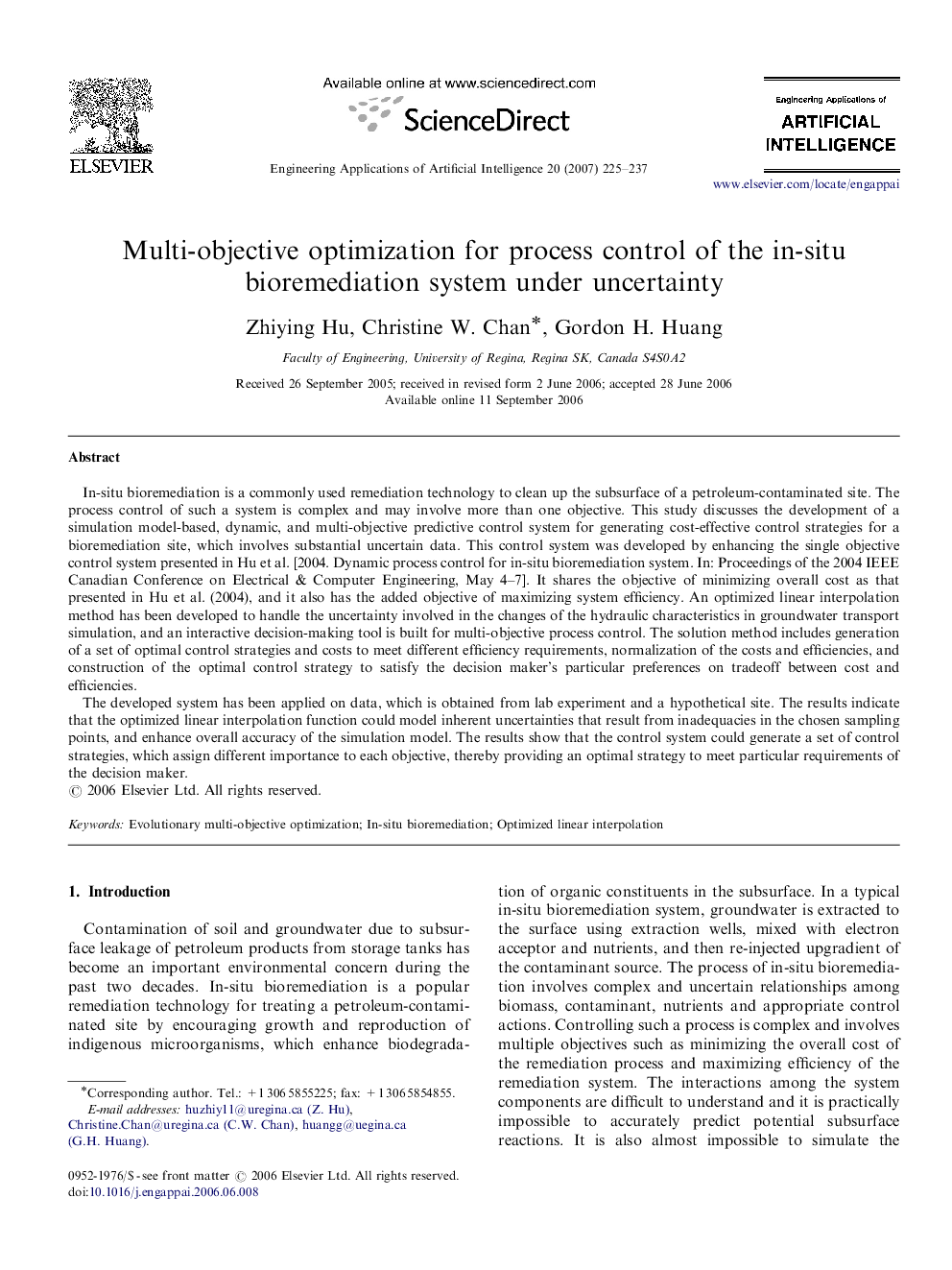| کد مقاله | کد نشریه | سال انتشار | مقاله انگلیسی | نسخه تمام متن |
|---|---|---|---|---|
| 381750 | 1437507 | 2007 | 13 صفحه PDF | دانلود رایگان |

In-situ bioremediation is a commonly used remediation technology to clean up the subsurface of a petroleum-contaminated site. The process control of such a system is complex and may involve more than one objective. This study discusses the development of a simulation model-based, dynamic, and multi-objective predictive control system for generating cost-effective control strategies for a bioremediation site, which involves substantial uncertain data. This control system was developed by enhancing the single objective control system presented in Hu et al. [2004. Dynamic process control for in-situ bioremediation system. In: Proceedings of the 2004 IEEE Canadian Conference on Electrical & Computer Engineering, May 4–7]. It shares the objective of minimizing overall cost as that presented in Hu et al. (2004), and it also has the added objective of maximizing system efficiency. An optimized linear interpolation method has been developed to handle the uncertainty involved in the changes of the hydraulic characteristics in groundwater transport simulation, and an interactive decision-making tool is built for multi-objective process control. The solution method includes generation of a set of optimal control strategies and costs to meet different efficiency requirements, normalization of the costs and efficiencies, and construction of the optimal control strategy to satisfy the decision maker's particular preferences on tradeoff between cost and efficiencies.The developed system has been applied on data, which is obtained from lab experiment and a hypothetical site. The results indicate that the optimized linear interpolation function could model inherent uncertainties that result from inadequacies in the chosen sampling points, and enhance overall accuracy of the simulation model. The results show that the control system could generate a set of control strategies, which assign different importance to each objective, thereby providing an optimal strategy to meet particular requirements of the decision maker.
Journal: Engineering Applications of Artificial Intelligence - Volume 20, Issue 2, March 2007, Pages 225–237